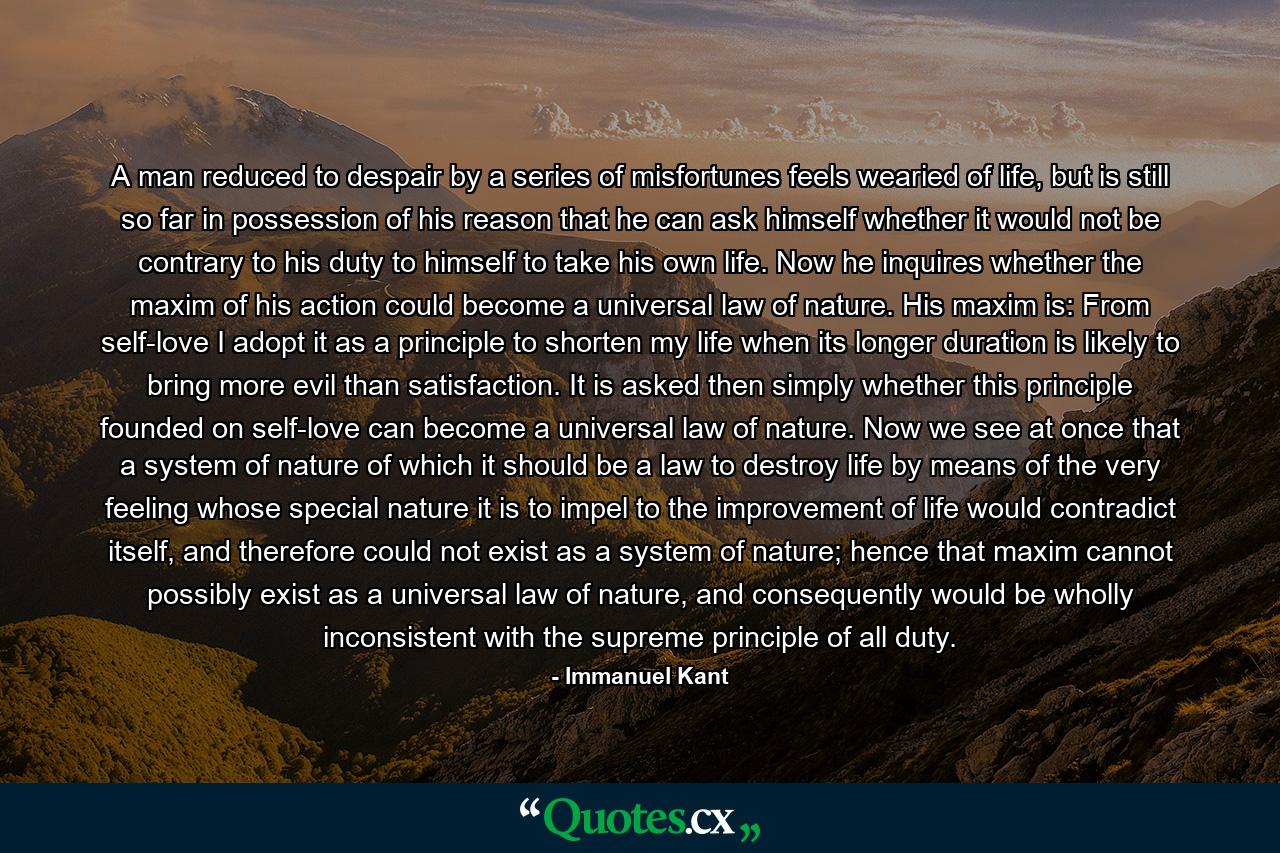A man reduced to despair by a series of misfortunes feels wearied of life, but is still so far in possession of his reason that he can ask himself whether it would not be contrary to his duty to himself to take his own life. Now he inquires whether the maxim of his action could become a universal law of nature. His maxim is: From self-love I adopt it as a principle to shorten my life when its longer duration is likely to bring more evil than satisfaction. It is asked then simply whether this principle founded on self-love can become a universal law of nature. Now we see at once that a system of nature of which it should be a law to destroy life by means of the very feeling whose special nature it is to impel to the improvement of life would contradict itself, and therefore could not exist as a system of nature; hence that maxim cannot possibly exist as a universal law of nature, and consequently would be wholly inconsistent with the supreme principle of all duty.
